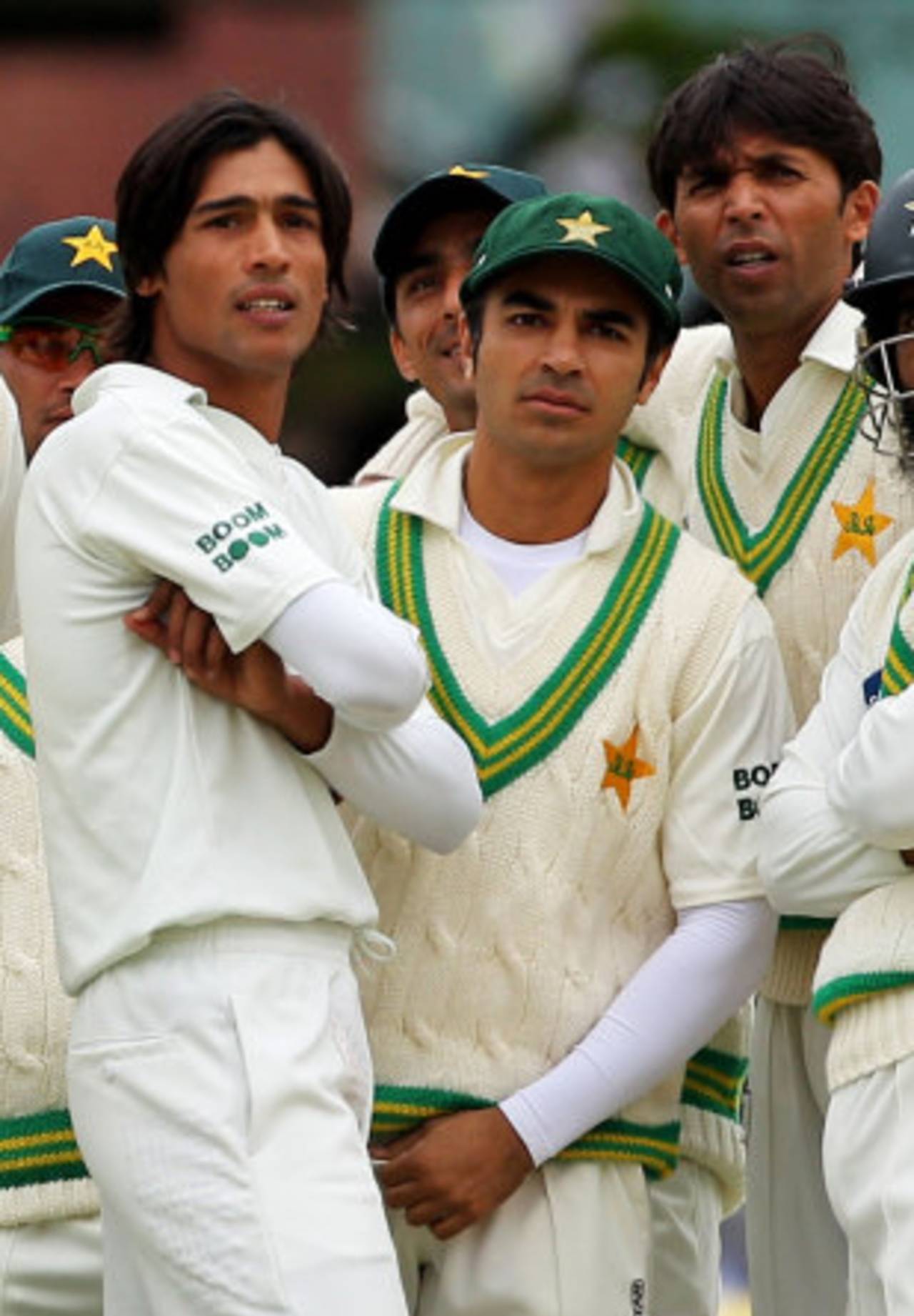Saving the next Amir
The ICC's punishment may be hard on three talented cricketers but it was necessary to save the next one from falling into the same trap
Sambit Bal
Feb 6, 2011, 3:28 PM

In the long run cricket will benefit from the ICC's judgement • Getty Images
For anyone who cherishes cricket's ultimate gift, the joust between bat and ball, it is impossible not to feel a certain sadness about the fate of the two Mohammads, Asif and Amir. Between them they brought craft and cunning, raw skills and bowling intelligence, swing and seam, and the possibility of a bowling partnership to rival the very best in history.
But the game must be ruthless with those attempting to compromise it, and there is no more base deed for a sportsperson than to betray the trust and emotions invested in him. Those three no-balls might seem a trifle compared to some of the misdemeanours of the past, but the fact that cricket has been weak, indecisive, and insincere in the past in dealing with its most malignant scourge is no reason for it to let up now. Five years for a couple of no-balls - plenty of which have been bowled deliberately down the years - might seem excessive, but with some transgressions, merely crossing the line is the severest of acts.
Fixing of any kind corrodes the game at the very root and it cannot be treated by merely shaking off a few leaves. In the past, allowing individual boards to deal independently with their lot meant inconsistencies in investigations and punishments. This was a landmark case because the ICC took upon itself the responsibility of conducting the trial and bringing the culprits to book and there has been a lot to commend in the way the trial has been conducted.
Right from the start there was no prevarication or attempt at fudging. The Pakistan Cricket Board reflected the mood of the nation, which swung between shock, anger, outrage, both at the players, and in some quarters at perceived conspirators out to malign the players. The ICC responded swiftly, banning the players provisionally and instituting a tribunal to try them.
Barring the possibility the tapes were masterfully cooked up - and their authenticity has never been challenged - the case had seemed pretty clear. The no-balls had been delivered precisely as had been predicted, and the sight of Salman Butt's gaze fixed on Amir's overstretched front foot, when they should have been on the batsman while fielding at mid-off, will remain the enduring image of the spot-fixing scandal.
In the past, allowing individual boards to deal independently with their lot meant inconsistencies in investigations and punishments. This was a landmark case because the ICC took upon itself the responsibility of conducting the trial and bringing the culprits to book and there was a lot to commend in the way the trial has been conducted
Of course the no-balls had no bearing on the result; Amir bowled sensationally in the Test and no evidence has surfaced so far that the no-balls were linked to betting. Prima facie, it was a case of Mazhar Majeed trying to display his hold over the players. But it was also a case of players being compromised. You can't be only a little guilty when it comes to fixing of any kind, and spot-fixing is even more virulent that full-blown match-fixing. It is far easier to organise and far tougher to detect. Butt, Asif and Amir can consider themselves unfortunate they have been the subjects of a sting but it was a clear case of cricket getting lucky. Who knows how many such instances play out in front of our unsuspecting eyes?
Once it came to light, though, there was no option for cricket but to deal with it in the toughest manner possible. Pakistan cricket has been guilty in the past of half-measures, of not trying to make a clean break. It is a tragedy, no doubt, to lose three players who would have been part of the long-term plan. In Butt they seemed to have found a calm, urbane and improving captain, and in the Mohammads a match-winning new-ball pair.
But in the long run Pakistan cricket, and cricket everywhere else, will benefit from this. It is naïve to believe that match-fixing or spot-fixing can be eradicated completely. Corruption exists, in varying degrees, in all societies, and weakness in the face of the lure of wealth is among the earliest human foibles. But the reward for sporting success goes far beyond the financial. It brings glory, adoration and honour. Artists, writers and scientists are admired and respected, movie heroes acquire stardom. Sportspersons gain all these and something more: they corner a special place in our hearts. We can feel their joy, their glory and their pain like they are our own. It's the highest of gifts. That's why the betrayal of one's sport is among the lowest of moral crimes.
The heart weeps at the sight of Amir. For a boy so full of skills and so full of life to be banished from the game for an indiscretion the scale of which he might not have been able to comprehend at the time is the biggest shame. But the punishment is necessary to ensure the next Amir doesn't go the same way. Cricket needs the toughest of deterrents to protect itself from corruption. No preventive measures are ever going to be enough; the cost of getting caught must be the heaviest imaginable.
Sambit Bal is the editor of ESPNcricinfo